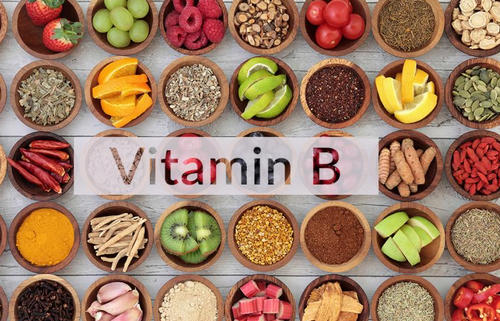vitamin b12 and depression – Vitamin B12 is an essential nutrient that plays a key role in several physiological processes in the body, including the metabolism of energy and the synthesis of red blood cells and neurotransmitters. In recent years, there has been growing interest in the potential relationship between Vitamin B12 and depression, with some studies suggesting that Vitamin B12 supplementation may be beneficial in treating depression.
Depression and Vitamin B12
Depression is a common mental health condition that is characterized by persistent feelings of sadness, hopelessness, and a lack of interest or pleasure in activities that were once enjoyed. Depression can also be accompanied by physical symptoms, such as fatigue, changes in appetite, and sleep disturbances.
While the exact cause of depression is not fully understood, it is believed to be related to a combination of genetic, environmental, and lifestyle factors. However, recent research has also suggested that a deficiency in certain vitamins, including Vitamin B12, may contribute to the development of depression.
Vitamin B12 is involved in the synthesis of neurotransmitters, including serotonin, norepinephrine, and dopamine, which are responsible for regulating mood. Low levels of Vitamin B12 have been associated with low levels of these neurotransmitters, which may contribute to depression. Additionally, Vitamin B12 is involved in the metabolism of energy, and a deficiency in Vitamin B12 can lead to fatigue, which is a common symptom of depression.

Vitamin B12 supplementation and depression
Several studies have investigated the potential relationship between Vitamin B12 supplementation and depression, with some suggesting that Vitamin B12 supplementation may be beneficial in treating depression.
One study, published in the Journal of Affective Disorders in 2009, found that Vitamin B12 supplementation improved symptoms of depression in patients with depression and Vitamin B12 deficiency. In this study, patients with depression who were also deficient in Vitamin B12 received Vitamin B12 injections for eight weeks. The results showed that Vitamin B12 supplementation significantly improved symptoms of depression, compared to placebo.
Another study, published in the Journal of Affective Disorders in 2015, found that Vitamin B12 supplementation improved symptoms of depression in elderly patients with depression and Vitamin B12 deficiency. In this study, elderly patients with depression who were also deficient in Vitamin B12 received Vitamin B12 supplementation for eight weeks. The results showed that Vitamin B12 supplementation significantly improved symptoms of depression, compared to placebo.
In addition to these studies, several other studies have also suggested that Vitamin B12 supplementation may be beneficial in treating depression. However, it is important to note that these studies are limited in their scope and further research is needed to confirm these findings.
Dosage and safety
The recommended daily allowance (RDA) for Vitamin B12 varies depending on the individual’s age, gender, and overall health status. In general, it is recommended to supplement with Vitamin B12 at a dose of 2.4 micrograms per day for adults.
It is also important to note that while Vitamin B12 is generally considered safe, excessive doses can cause adverse effects, such as skin reactions, digestive problems, and nerve damage. It is important to always follow the recommended dosages and consult with a healthcare professional before starting any new supplementation program.
Vitamin B12 is an essential nutrient that plays a key role in several physiological processes in the body, including the metabolism of energy and the synthesis of neurotransmitters. There is growing evidence to suggest that a deficiency in Vitamin B12 may contribute to the development of depression, and that Vitamin B12 supplementation may be beneficial in treating depression.
However, it is important to note that these findings are limited and further research is needed to confirm the potential relationship between Vitamin B12 and depression.
While more research is needed, it is also important to consider other factors that may contribute to depression, such as genetics, lifestyle, and environmental factors. Additionally, while Vitamin B12 supplementation may have some potential benefits in treating depression, it is not a substitute for other forms of treatment, such as therapy and medication.
For individuals who are experiencing symptoms of depression, it is important to consult with a healthcare professional to receive an accurate diagnosis and receive appropriate treatment. This may involve a combination of therapy, medication, and lifestyle changes, such as regular exercise, a balanced diet, and stress management techniques.
In summary, Vitamin B12 is an important nutrient that plays a role in several physiological processes in the body, and there is evidence to suggest that Vitamin B12 supplementation may be beneficial in treating depression. However, further research is needed to fully understand the potential relationship between Vitamin B12 and depression, and individuals experiencing symptoms of depression should seek professional help for an accurate diagnosis and appropriate treatment.


